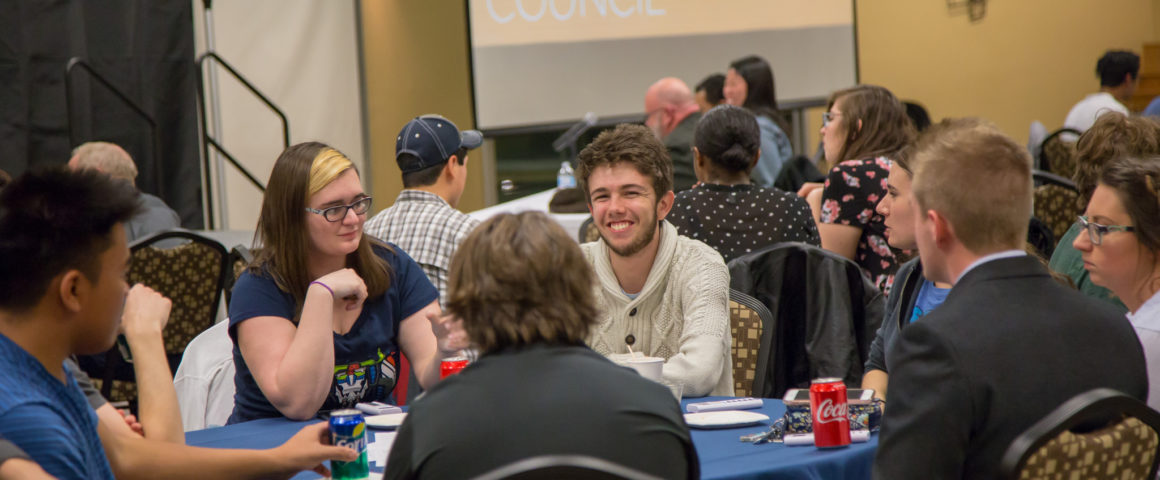As students and faculty at Mines are often painfully aware, money makes the world go ‘round. All projects, equipment, classes, and trips need some form of funding to get them started and keep them running. Good ideas frequently go nowhere without cash, and this is where the Mines Philanthropy Council’s Philanthro-Tank event comes in.
The Mines Philanthropy Council promotes and facilitates student donation to the Mines community, both for the sake of students helping themselves and others now and for establishing good habits and impact awareness so that they may continue giving back after they leave school.
The Council emphasizes the three “T”s of philanthropy: Time, which encompasses service hours and committing to causes that one believes in, Treasure, which is essentially donating money to important causes, and Talent, which involves supplying resources to causes that need them. The Philanthropy Council’s Jan. 19 event demonstrated these methods.
“The whole point [of the Philanthro-Tank] is…trying to help students give back the way they think this campus needs it,” explained Mines Philanthropy Council President and senior year Applied Mathematics and Computer Science major, Katrina Steinman.
The Philanthro-Tank event has been running for three years and begins with an application on the Mines Philanthropy Council’s Orgsync page. The application, which is available during a designated time-period for any CSM community member who has an idea for improving campus, collects information on budget, project impact, and idea sustainability.
Once an application is approved, applicants present at the Philanthro-Tank event for a panel of judges which includes faculty and staff members, some Mines donors and, at times, past Philanthropy Council members.
The judges are given a rubric which allows them to rank the projects in terms of impact quantity, impact quality, sustainability, funding effectiveness, and other important factors. Unfortunately, the Philanthropy Council is (currently) unable to fund all of the proposed projects, so once the event is concluded, Steinman takes the data from the students, judges, and presenters and complies it into a PowerPoint presentation so the Philanthropy Council can decide which project (or projects) to fund.
The Philanthropy Council announces the finalists and, as of this year, the Philanthropy Council begins promoting those finalists at the #idigmines Giving Day event (Feb. 8 this semester). Between the existing funds from donors and the money raised at the #idigmines day, the council hopes to be able to fund the two finalists which emerged from the five groups that presented this year.
The two finalists this year are from Mines Little Theatre (MLT) and the Mines Robotics Club. Steinman explains that Mines Little Theatre has historically struggled with funding and has turned to the Philanthro-Tank for assistance with buying building materials and storage spaces for sets. MLT’s latest request for funding for lighting equipment to assist with presentations at the American Mountaineering Museum has the potential to last for decades, making it a good investment for the arts on campus.
The Mines Robotics Club, according to Steinman, is a non-traditional finalist for the Philanthro-Tank in that it requested funding to help offset travel costs to regional and national competitions. However, the group’s outreach with children and teenagers at school and prospective students will broaden the impact of the funding that the Philanthropy Council intends to give to it.
The Mines Philanthropy Council will reveal which finalists are getting money and how much each is getting on its social media accounts (including Facebook and Instagram) on Feb. 14. Once the work of this year’s Philanthro-Tank has concluded, the Philanthropy Council will focus some of its attention on other projects, including its upcoming website (servicesearch.mines.edu) which will allow students to search for service events on and available through campus, and a new project, Feed Minds to Feed Mines, wherein the Council collects donated meal swipes from students and uses them to create meal vouchers for students with food insecurity.
These vouchers are available in the Mines Food Cupboard across from the USG office in the Student Center. According to Steinman, the focus of what the Council does is “all about [students] paying it forward in any way that [they] personally can.”


'Philanthro-Tank Finalists: MLT, Robotics Club' has no comments
Be the first to comment this post!